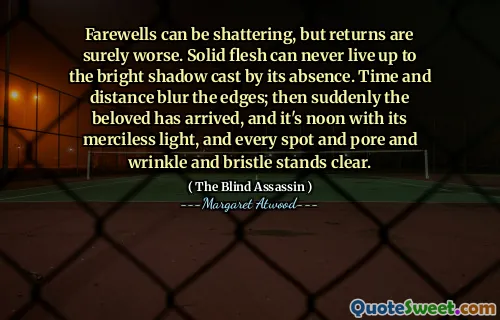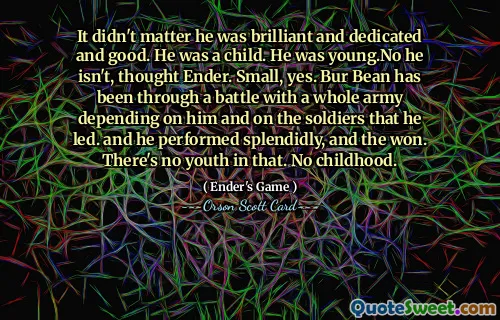What fabrications they are, mothers. Scarecrows, wax dolls for us to stick pins into, crude diagrams. We deny them an existence of their own, we make them up to suit ourselves -- our own hungers, our own wishes, our own deficiencies.
In "The Blind Assassin," Margaret Atwood presents a thought-provoking perspective on motherhood, suggesting that societal perceptions of mothers often distort their true identities. She compares mothers to fabrications like scarecrows or wax dolls, which implies that they are often viewed as tools for others’ needs rather than as independent beings. Atwood argues that this objectification denies mothers their own existence and complexity, as they are shaped by the desires and shortcomings of those around them. This commentary highlights how personal and societal expectations can lead to a simplistic and one-dimensional understanding of motherhood, emphasizing the need to recognize and appreciate the individuality of mothers beyond these projections.





